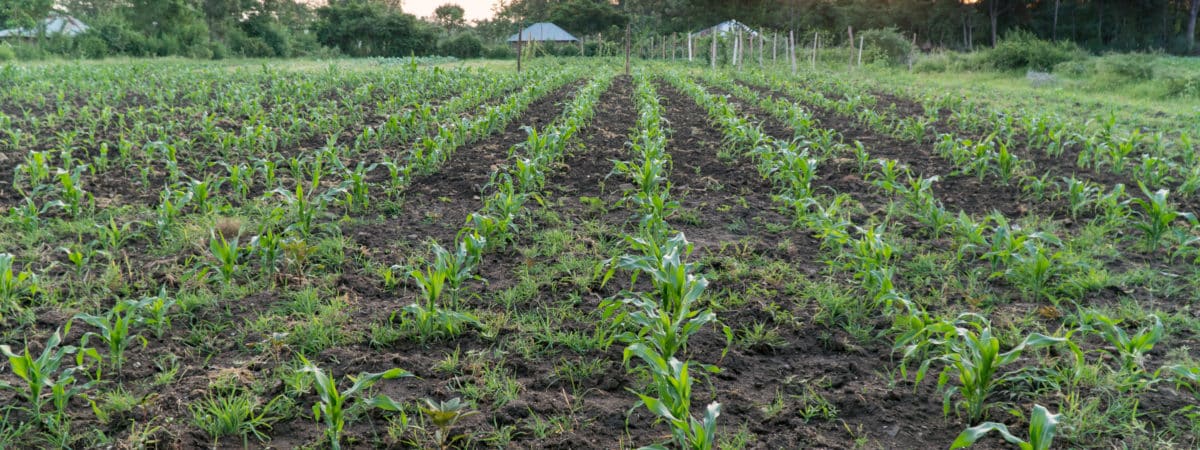Walk Talk Listen | Kate Schecter
May 18, 2022Hiding in Plain Sight: Why Savings and Credit are Still Essential to Crushing Poverty.
May 26, 2022Organic Inputs Prove Their Worth As Fertilizer Costs Skyrocket

By Kate Schecter
Organic fertilizer and pesticides have been growing in popularity for years. This growth has largely been due to the mainstream adoption of organic produce and other foods in high-income countries. The main attraction are the health implications. Consumers seek to avoid the possible negative impacts of strong chemicals and those derived from petroleum products.
The Russian attack on Ukraine and its effects on the price of chemical fertilizers has shined a light on other reasons for the growing adoption of organic inputs, especially in low-income countries: higher profits. Organic fertilizers and pesticides are usually less expensive than chemical varieties. Further, if used as part of a comprehensive approach, organic inputs can boost volume and, with it, further contribute to higher profits.
“Conservation agriculture,” as this holistic approach is sometimes called, is based on the application of systematic innovations to traditional techniques. For example, take what’s happening in East Lombok, Central Lombok and Dompu in Indonesia.
With the assistance of local and international NGOs and government experts, nearly 3,000 farmers have been trained in and are using conservation agriculture techniques. At the center of the training is how to produce and use fertilizer to boost the yields of corn planted with in-hole and row tillage. By using locally produced organic compost, farmers increased yields by 61 percent in 2019, 99 percent in 2020 and 137 percent in 2021. Not only are these impressive increases. They also demonstrate growing productivity as organic compost enhances soil health over time. These yield increases are significantly higher than on similar farms using chemical fertilizers Ponska and Urea.
Another example is what’s happening in Kenya’s Murang’a county. This is one of the many areas in Kenya focused on tea crops. Over the years, farmers have used ever-increasing amounts of chemical fertilizers and pesticides to try to boost yields. Over time, soil degradation as a result of the use of these chemicals has lowered yields. The negative impact on incomes is magnified by the actions of banks and moneylenders, who target farmers with high-interest loans taken out against prospective annual incomes. When crops fail to meet anticipated yields, farmers can fail to make interest payments and find themselves in a debt trap. This is not uncommon in low-income countries, where lack of capital and low yields keep family farmers in poverty.
The Organic Agriculture Center of Kenya (OACK) is helping farmers address the factors that keep them from increasing their incomes and leading better lives. Organic farming practices are at the root of their approach. OACK holds training sessions in which farmers learn to make organic chemical and fertilizers. For example, farmers are trained to use cattle manure as fertilizer and cattle urine mixed with other organic ingredients as pesticide. The organic pesticides not only repel harmful insects. Along with organic fertilizer, they help restore soil health degraded by chemical inputs.
With organic inputs, crop diversification and other techniques, tea farmers in Marang’a have increased output by as much as 40%. By cutting out chemical fertilizers, they’ve significantly increased profit margins. Additional profits are invested in savings and credit groups. These are farmer-controlled groups to which farmers contribute small monthly amounts. When capital is amassed, farmers take out loans at low or no interest to invest in farm implements, livestock and other goods. Over time, these groups amass enough capital to eliminate the need for bank and moneylender high-interest loans—a key to financial independence, sustainable income and wealth creation.
Kate Schecter is President and CEO of World Neighbors.
This article originally appeared on TheEnvironmentalMagazine on May 25, 2022.

